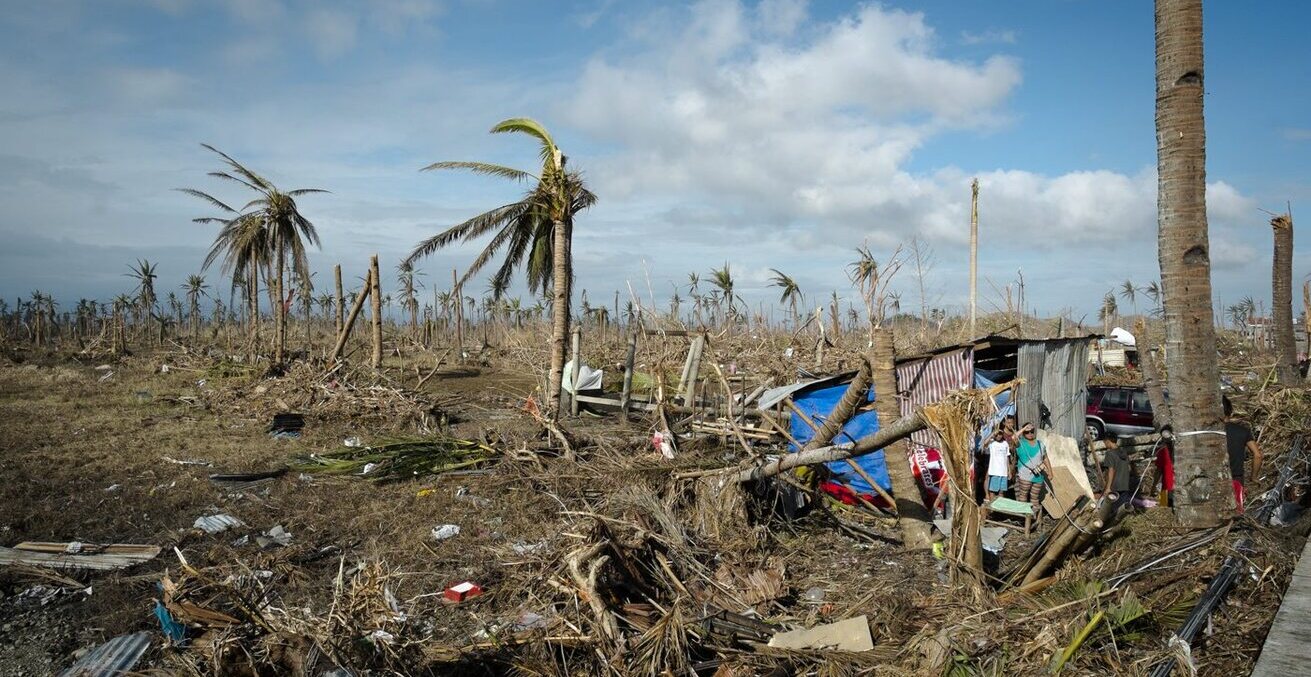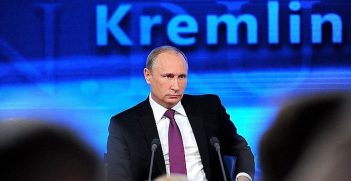A Perfect Storm? How Disasters Impacted Democracy in the Philippines

President Duterte capitalised on Typhoon Haiyan (Yolanda). As disasters become more frequent, there will be further opportunity for political change in the Philippines.
The Philippines is one of the world’s most vulnerable countries to disasters. It sits in the typhoon belt and the Pacific Ring of Fire, which means that the country is constantly at risk of typhoons, earthquakes, and volcanic eruptions. These risks are expected to escalate in the coming years, as extreme weather events become “the new normal” because of climate change. Aside from exposure to natural hazards, the country is beset with governance challenges such as elite rule, the rise of disinformation, and democratic backsliding. These challenges can compound vulnerability during disasters. The country is also saddled with high socio-economic inequality and a dependence on resource extraction such as logging, which contributes to the transformation of the environment in ways that increase the severity of disasters.
Disasters and the opportunities for populist performances
The 2013 typhoon Haiyan (Yolanda) disaster not only resulted in significant loss of life, but also severely impacted Philippine democracy through populist political performances. The typhoon’s wind strength topped 300 kilometres per hour and unleashed 5-7-metre-high storm surges in affected areas. Though the official death toll from the typhoon counts 6,300 deaths, some residents estimate that the death toll could reach between 10,000 – 20,000.
The disaster disrupted the social contract established during the term of President Benigno “Noynoy” Aquino III (2010-2016). While Aquino’s term is largely lauded for its efforts in instituting economic reforms, curbing corruption, jailing corrupt officials, and reviving investor confidence in the country, the administration faced several crises that undermined its popularity and stability, which resulted in elite and social movement challenges to the administration. While these challenges never seriously led to regime change, they provided the arena for populist performances against Aquino and sparked narratives that would fuel the populist challenge of Duterte during the 2016 Presidential election.
The aftermath of typhoon Yolanda provided the avenue for the populist performance of Rodrigo Duterte at a national scale. Amid the chaos in the immediate aftermath of Haiyan, then-Davao City Mayor Rodrigo Duterte organised a convoy from Davao City to Tacloban City to rescue survivors in Yolanda-affected areas who had roots in Davao City, while also providing PHP ₱8 million of relief goods and equipment to devastated areas. The mayor had gained notoriety for his law-and-order campaign against drugs in Davao City, which targeted small-time street peddlers of methamphetamine. However, his visit to Tacloban allowed the public to see a different side to the notorious mayor, as a visibly distraught Duterte became vulnerable to the public. With tears, he said “I think God was somewhere else when the typhoon hit… or he forgot that there’s a planet called Earth.” In contrast, Aquino was painted as a man who did not have empathy for the people.
Weeks after the typhoon, Aquino travelled to Tacloban to meet with the survivors, but he quickly rebuffed distraught residents when he refused to believe that almost the entire city was devastated and that looting and other criminal activities were occurring in the area. Another incident involved a group of Yolanda survivors who made a trip to Malacañang Palace in Manila. The survivors were made to wait for three hours outside the Palace but were eventually rebuffed. The contrast in their political performance in the aftermath of the disaster highlighted Duterte as a “man of the people,” compared to the mechanical, bureaucratic responses of the Aquino government. This populist performance of Duterte, coupled with the incessant attacks on the Yolanda response by critics, and disinformation trolls on social media, partly contributed to the victory of Duterte in the 2016 election.
The mechanisms which diffuse democratic norms
Disasters also provide avenues for popular challenges and democratic deliberation from the citizens even in the absence of electoral contests. Sociologist Nicole Curato has documented the varying forms of citizen participation and deliberation in shaping housing policy in the aftermath of disasters. In my past research, I have documented social movement challenges in the aftermath of the disaster that has contested the unequal distribution of aid, land evictions against the urban poor, and overall social movement discontent in the disaster reconstruction processes. While these forms of political actions rarely translate to electoral outcomes, increased activity from civil society organisations (CSO) have the potential to diffuse democratic norms of accountability, deliberative democracy, and participation in grassroots communities, providing the seeds for popular empowerment even in the absence of electoral contests.
While the lessons from Yolanda provide us with a small glance into how disasters affect democracy, contemporary processes in the Philippines can affect how disasters shape democratic outcomes in the future. Democratic backsliding in the Philippines during the term of Duterte is evident in the growing centralisation of powers in the executive branch, the repression of political dissidents, and tightening regulatory spaces for CSO activities. These changes will shape the interaction between democracy and any future disasters. The electoral victory of Ferdinand “Bongbong” Marcos Jr., son of former dictator Ferdinand Marcos Sr., over current Vice President Maria Leonor Robredo, will likely mean a continuity of the institutional arrangements set into motion under Duterte and thus, how disasters shaped democracy during the term of Aquino may no longer be expected in the immediate future.
The coming years will be a test of the resilience of democratic institutions in the Philippines. How the Philippines will respond to disasters in the future will provide important insights into the prospects of democracy not only in the country, but also in the region.
Dakila Kim P. Yee is Assistant Professor of Sociology at the University of the Philippines Visayas Tacloban College. His research is on the urban political ecology of disaster reconstruction in the Philippines after typhoon Haiyan and critical environmental conservation studies.
This article is published under a Creative Commons Licence and may be republished with attribution.





